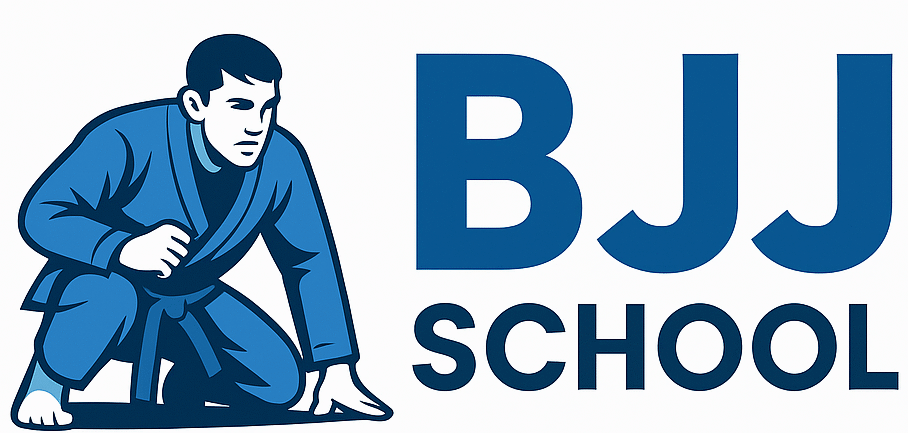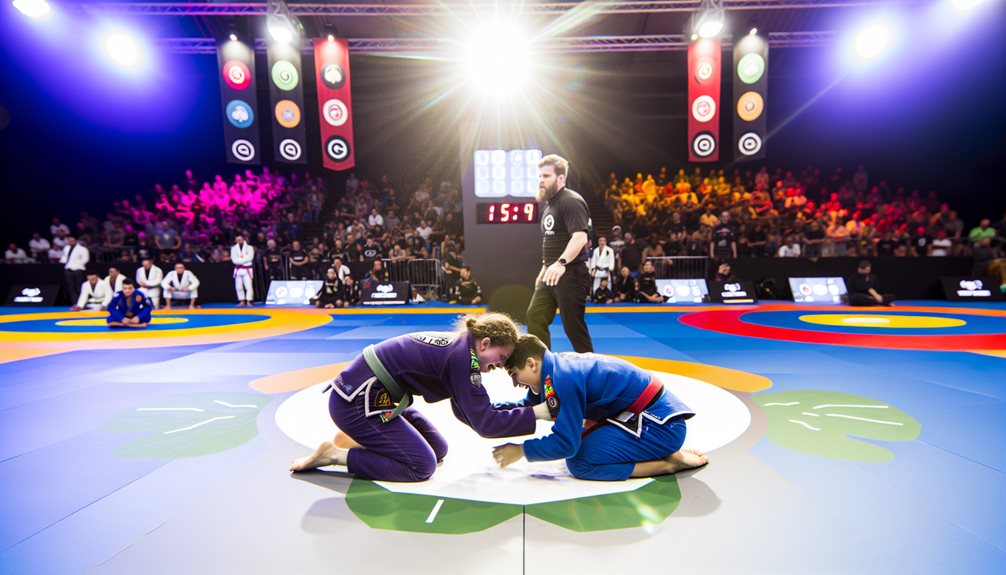Jiu Jitsu match durations represent a critical variable across competition formats, greatly impacting athlete preparation and strategy development. The standard time allocations range from short 2-minute youth matches to extended 20-minute professional finals. IBJJF structures create a progressive system where competitors face longer matches as they advance through belt rankings. Meanwhile, submission-only events like ADCC implement entirely different timing protocols. These variations fundamentally alter the energy management requirements, tactical approaches, and psychological demands placed upon competitors throughout their competitive careers.
IBJJF Standard Time Formats By Belt Level
The International Brazilian Jiu-Jitsu Federation (IBJJF) structures match durations according to a five-tier belt hierarchy, with each level assigned specific time parameters.
White belt matches run for 5 minutes, while blue belt competitors face 6-minute contests. Purple belt practitioners engage in 7-minute bouts, advancing to 8 minutes at brown belt level. Black belt matches, representing the pinnacle of competition, extend to 10 minutes.
These belt durations remain consistent across age divisions, though masters’ categories may feature reduced times.
The competition rules stipulate that timing begins when the referee signals and pauses only during specific stoppages determined by official IBJJF protocols.
ADCC and Submission-Only Tournament Timing Rules
Unlike IBJJF competitions with standardized belt-based durations, ADCC (Abu Dhabi Combat Club) and submission-only tournaments implement distinctive timing structures prioritizing decisive finishes rather than point victories.
ADCC matches typically feature 10-minute regulation periods for preliminary rounds, extending to 20 minutes for finals. The first half operates under positional scoring, while the second half introduces submission rules that allow heel hooks and other techniques restricted in traditional formats.
Submission-only events like EBI (Eddie Bravo Invitational) utilize 10-minute regulation periods with no scoring, followed by overtime rounds if necessary. This format maximizes match intensity by eliminating point advantages, forcing competitors to actively pursue submissions throughout.
The Evolution of Match Duration in Major Championships
Throughout Brazilian Jiu-Jitsu’s competitive history, match duration parameters have undergone significant transformations in response to evolving competitive priorities and audience engagement considerations.
Historical match durations in early championships often exceeded today’s standards, sometimes allowing unlimited time frames for elite competitions.
The IBJJF’s standardization in the early 2000s established the foundation for modern time limits.
Subsequent competition rule changes have generally trended toward shorter matches, particularly in professional events seeking broadcast viability.
Organizations like the ADCC have maintained longer durations for prestigious events while implementing strategic rule adjustments to balance competitor endurance with spectator experience.
How Different Time Formats Affect Strategy and Pacing
Match duration profoundly influences competitor strategy and tactical approach in Brazilian Jiu-Jitsu competitions, creating distinct competitive environments based on time constraints.
Shorter formats (5-6 minutes) typically generate higher match intensity from the outset, as athletes must score quickly without conservative engagement.
Conversely, longer matches (8-10 minutes) enable more sophisticated pacing strategies, where competitors manage energy expenditure through tactical breathing and selective engagement.
Elite competitors adapt their game plans accordingly—aggressive takedown attempts and submission hunting dominate shorter formats, while methodical pressure and progressive positional advancement characterize longer contests.
The psychological component shifts dramatically between these time paradigms, affecting risk calculation and defensive priorities.
Youth and Masters Divisions: Adjusted Time Considerations
BJJ competitions recognize the physiological differences across age groups by implementing carefully calibrated time adjustments for youth and masters divisions.
Youth adjustments typically feature shorter matches ranging from 2-4 minutes, depending on age bracket and belt level, preventing exhaustion while maintaining competitive integrity.
Masters considerations reflect decreasing endurance capacity with age. Competitors in 30+ categories often compete in 5-minute matches, while those in 50+ divisions may have further reduced durations of 3-4 minutes.
These modifications acknowledge physiological realities while preserving technical development opportunities across the lifespan, ensuring accessibility without compromising the fundamental challenge of the sport.

